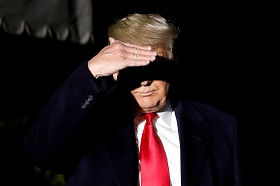One of the major achievements of 2019 was the US Department of the Treasury’s truly monumental efforts to collect fines from foreign businesses for breaching US sanctions. Such fines have long become an irritating risk. Although big fines worth several hundred million or even several billion US dollars are still few and far between, the very fact that businesses have to be involved in US official enquiries is anything but pleasant. Over the past 10 years, the DOT has completed 214 investigations leading to a company, nonprofit organization or individual acknowledging their guilt and paying a fine. In 2019, the results of 26 investigations were published, the highest indicator since 2013. This surge is unlikely to have been preplanned, but the 2019 materials reveal a number of interesting patterns.
One of the major achievements of 2019 was the US Department of the Treasury’s truly monumental efforts to collect fines from foreign businesses for breaching US sanctions. Such fines have long become an irritating risk. Although big fines worth several hundred million or even several billion US dollars are still few and far between, the very fact that businesses have to be involved in US official enquiries is anything but pleasant. Over the past 10 years, the DOT has completed 214 investigations leading to a company, nonprofit organization or individual acknowledging their guilt and paying a fine. In 2019, the results of 26 investigations were published, the highest indicator since 2013. This surge is unlikely to have been preplanned, but the 2019 materials reveal a number of interesting patterns.
The first such pattern involves the amount of the fines. In 2019, they added up to $1.29 billion. A comparable sum was raised only in 2014, when most payments came from a single major operator, BNP Paribas. This case remains unique in legal and political analysis. In 2019, just two companies – Standard Chartered Bank (SCB) and UniCredit Bank (UCB) accounted for the bulk of fines paid ($657.04 million and $611.02 million, respectively, or 98% of the total per year). Indicatively, both are European banks. This again reveals a tendency of the past few years, when it was European banks that faced the biggest fines. The financial sector was also the biggest payer of fines in 2019, with banks accounting for 7 cases out of 26. No other sector could boast such a frequency.
However, this is generally a characteristic pattern in the US law enforcement practice. Banks breach the sanctions regimes more often than other companies and pay the biggest fines. This is explained by the sector’s specifics. Banks are engaged in a lot of deals where major sums are often involved. In recent years, they have markedly improved their deal monitoring capabilities for conformity to sanctions regimes. But mistakes are still committed for reason of software failures or managerial errors. Symptomatically, 5 out of 7 violations in 2019 were “blatant” in US terminology. This means that it was the banks that accounted for the gravest breaches.
The UCB and SCB cases will only strengthen the trend of the last few years, when banks were wary of any deals fraught with sanctions. As a result, they are displaying super-caution, tending to turn down a deal even if it sits perfectly well with the US legislation on sanctions. This policy has already hit some Russian companies and their foreign partners.
The most conspicuous case in 2019 was a DOT investigation against Haverly Systems, a US company that supplied software to Russia’s Rosneft. Fearing sanctions, banks withheld Rosneft payments to Haverly Systems, but eventually it received the money with a delay. This was enough for the Department of the Treasury to classify the incident as a violation of Directive 2 based on Presidential Executive Order 13662 of 2014. Specifically, the Directive restricts the timeframe for funding Russian energy companies. The delay was interpreted as Haverly Systems actually extending a credit to Rosneft. This situation is rather odd. Haverly Systems agreed to pay $75,300 in fines, but the case showed that the US regulator would apply a highly nuanced approach to violations, trying to find fault with even small things and non-obvious episodes.
It should be said that the Department of the Treasury itself has done a lot of work to generalize the record of its investigations against violators. The Office of Foreign Assets Control (OFAC) has issued basic recommendations for companies, corporations and other organizations on how to control sanctions risks and develop corporate regulatory fitness programs. The document analyzes in detail the typical mistakes committed by businesses and gaps in the managerial structure that lead to violations. The US authorities have compensated their hair-splitting by detailed explanations and instructions on how to comply with their sanctions regime.
Fines remain a key sanctions risk for the mainstream international businesses, that is, the companies that are not specially geared to collaborate with countries under sanctions. Fines are still a rather flexible measure that causes tangible discomfort but falls short of ousting a company from the international financial system, which means letting it do business as usual.
The risk of being fined is incomparable with a more serious risk of being entered on the SDN List, OFAC’s blacklist that implies a ban on practically all deals with blacklisted businesses. Being on the SDN means grave problems for a company’s international operations. This punishment was not generally used against major global companies, but 2019 sprang a surprise, with China’s COSCO Shipping Tanker, part of the global operator COSCO Shipping, being put on the SDN List in September. The US suspected the Chinese oil carriers of breaching sanctions against Iran. Even though COSCO Shipping Tanker was issued a general license for a number of financial operations necessary for its functioning, the fact that it is on the SDN List is a much more serious smear than the fines.
The COSCO Shipping Tanker case added up to the general deterioration of US-China relations and a number of other US attacks against Chinese firms. The Huawei saga is the best illustration of this point. At the same time, 2019 demonstrated that international businesses (including companies from the EU, China, Russia and other countries) were seeking to comply with the US sanctions regimes, despite the nature of their countries’ political relations with Washington. Businesses would like to distance themselves from politics and avoid the risk of being involved in US investigations, even though unilateral sanctions are dubious from the point of view of international law. So far, running a risk of losing profits is a more important argument for companies than political interests. Brussels, Beijing, Moscow and other capitals are increasingly unhappy about the US free-wheeling, although it is still a big question what political form this unhappiness will take and to what extent the business community itself will benefit from a political response.
First published in the Valdai Discussion Club.







